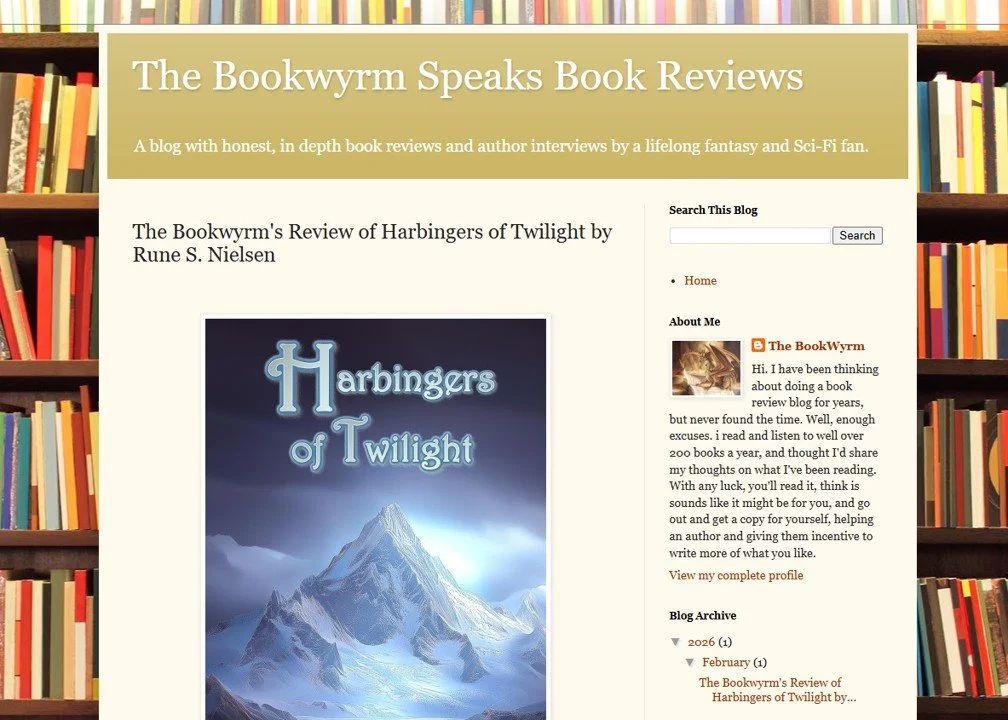I was lucky to get an interview with Sarah K. Balstrup, the author of The Way of Unity, and the first semifinalist in this year’s #SPFBO9.
Please, tell us a bit about yourself…
I am an Australian author of dark fantasy and former Religious Studies academic.
“The Way of Unity tells the story of an oppressive religious society controlled by psychic priests.”
Why should I buy your SPFBO9 entry?
The Way of Unity tells the story of an oppressive religious society controlled by psychic priests.
Following her family's murder, Sybilla Ladain seeks to destroy the priesthood, but in doing so, she severs the psychic connections that had bound her people as a spiritual community. A dark and lyrical tale of grief and redemption, The Way of Unity will appeal to admirers of Christopher Buehlman's Between Two Fires and Kerstin Hall's Star Eater.
What got you into writing? And how long have you been doing it?
I’ve always kept a journal, full of strange ideas, fragmentary stories and dreams. In the past, I used journaling as a means of personal reflection. The act of writing seems to draw symbolic connections to the surface, allowing new perspectives to emerge. I love that writing involves both creation and discovery.
How long have I been writing fiction? In my early years I was more interested in painting, turning to academic writing in my twenties. The Way of Unity is my first foray into novel writing.
Have you participated in the SPFBO before and where did you hear about the competition?
I discovered SPFBO through the Twitter writing community, but this is the first year that I’ve been eligible to submit. Unlike other comps where you send in your materials and hear nothing until the results are announced, SPFBO is very social. There are a lot of opportunities to chat with other self-pub authors who are posting under the SPFBO hashtag. It feels like a writing festival of sorts. Loving it so far.
Why did you choose to write fantasy?
Religious concepts and fantasy worldbuilding just seem to go hand-in-hand.
Most of the great fantasy novels draw inspiration from religious myths and I wanted to go back to those roots whilst creating a fictional religion that was completely unique. Religious myths–like art and poetry–lend themselves to symbolic interpretation and I wanted to work the theme of ‘unity’ into every level, from the cosmological to the personal.
Which other author has had the biggest influence on your writing?
When I started writing The Way of Unity, I hadn’t read a novel in years (PhD research had taken up all my reading time). The story-hungry part of my brain had been fed a diet of music, television and film. So, as weird as it sounds, the music of In Gowan Ring was my biggest influence in writing this novel.
When I started pitching to agents, I took the time to read widely in the genre, and to my great delight, discovered Christopher Buehlman’s Between Two Fires. I love Buehlman’s unique synthesis of horror, humour, and the surreal. No matter how dark things get, he does not lose faith in humanity, and for this reason, he has become one of the few horror authors I trust.
Do you have any tips or an author app, tool, or resource that you can really recommend we try?
I like writing in Scriviner as an alternative to Word, and Vellum is an excellent manuscript formatting tool. Of the ARC promotion services available, I quite like Book Sirens.
But ultimately, to write well, you need to be able to get into the right state of mind. If I ever feel my inspiration leaving me, I go and read Nick Cave’s The Red Hand Files (e.g. Issue #240).
And now it's time to yank out your Palantir! Let’s talk about the future. What new projects are you working on?
I am working on the second book in the Velspar–Elegies series: A Trail of Stars.
Apps that are based on artificial intelligence (AI), such as ChatGTP and Midjourney, along with apps aimed specifically at authors, have caused quite a stir. Do you expect these new technologies will make your life as a self-published author easier or harder, and do you expect that they’ll mean you’ll earn more or less?
I write to find a connection with creative states of mind and to communicate these deeply personal experiences with others. I see AI technology as irrelevant to my process, but I do not condemn open-minded people from experimenting with a new technology. Although, when the product of those experiments comes out the other end–a semi-plagiarized mutant thing with a price tag on it–then I want nothing to do with it.
Do you have any dreams you’d like to share?
When I have more time on my hands I’d love to put out an anthology through my imprint Burning Mirror Press featuring like-minded authors. Religious themes guaranteed…
Anything else you would like to say before we close?
Thank you so much for reaching out to do this interview!
That was some interesting answers. I wish you the very best in the SPFBO. I hope a lot of readers discover your writing. Thanks for doing the interview.




